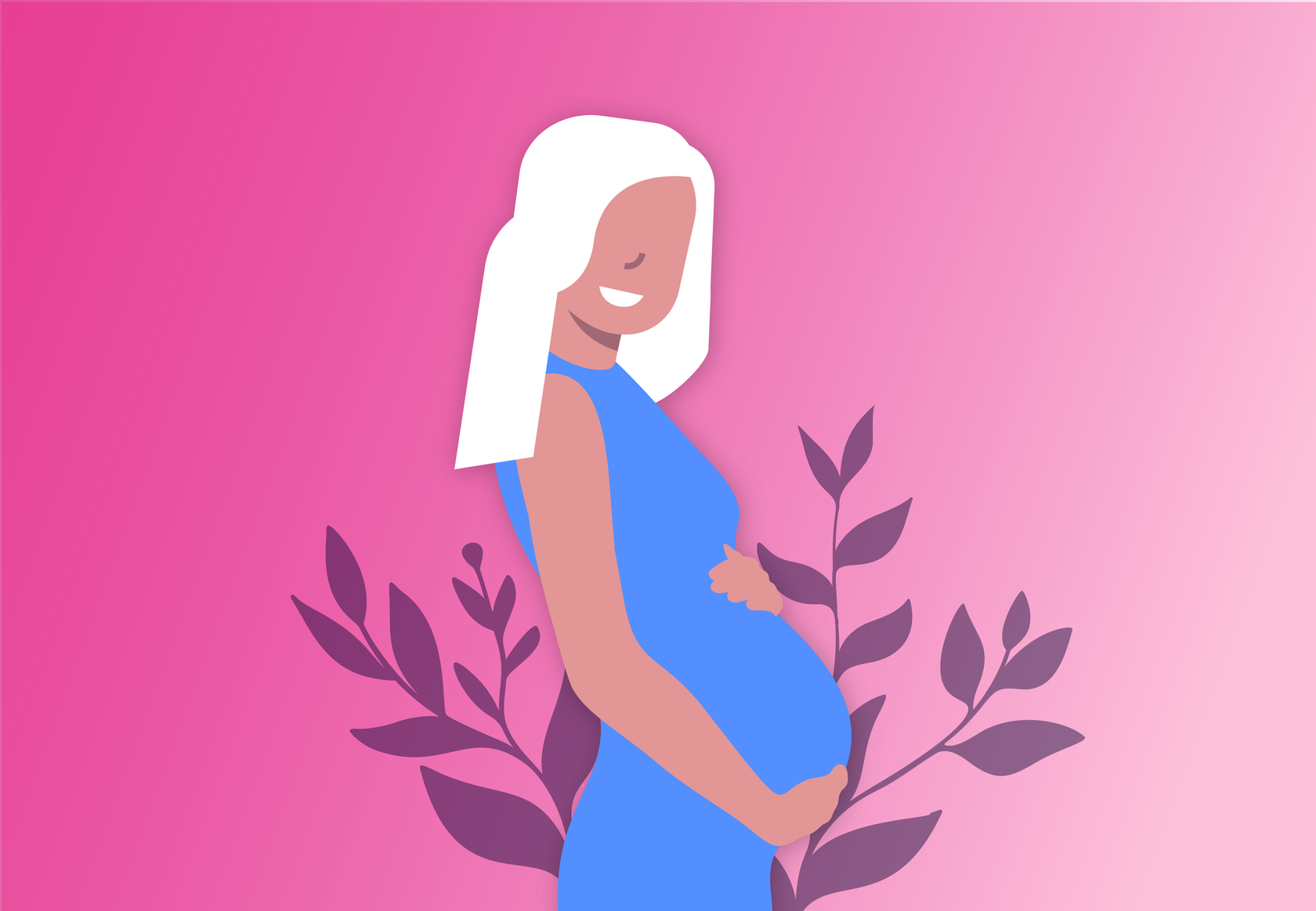A fair amount of women become pregnant, give birth, and breastfeed throughout their lifetime. As family planning and breastfeeding is an individual choice of every woman, it is important to be informed about the ways those factors impact your breast health.
Pregnancy and childbirth – how risk changes at different ages?
During the pregnancy, the impact of estrogen on the breast tissues is lessened, because of the disruption of the regular menstrual cycle. This creates somewhat of a “pause” for breast tissue cells, that have been affected by numerous hormones since puberty. This factor has an especial impact on hormone receptor positive breast tumors. About those, You can read here.
The more pregnancies a woman has had, the more hormone “pauses” there were. Due to that the risk of developing breast cancer decreases. On the other hand, disrupted pregnancies, especially in the second or third trimester, are associated not only with emotional burden but also with higher breast cancer risk - changes and maturation of breast cells that happens during pregnancy are not finished. There is no need to worry immediately, but it is good to be informed, so You can be aware of your health in the long run.
A lot of studies have shown that giving birth after the age of 35 is associated with a higher breast cancer risk, than giving birth earlier. There are multiple theories, but most researchers agree that this happens due to the change in the maturity of the cell during the first pregnancy, It is assumed that in women who already have been pregnant breast tissue cells are more mature and replicate at a lower rate than in those who have not given birth yet.1 This means that age at first birth has a relatively high impact on the health of the breasts.
Having first pregnancy at a later age is associated with higher risk. There is a higher chance, that due to the high rate of replication of the cells in the breast tissue, some mutations associated with breast cancer risk have accumulated. 2
Benefits of breastfeeding
Research indicates that breastfeeding, especially for a year or longer is able to lessen breast cancer risk. How?
- At the time when breasts produce milk, there is a lesser risk of developing any changes or mutations in the tissue that might lead to breast cancer.
- While breastfeeding, a woman’s menstrual cycle is delayed and the estrogen impact on the tissue is lessened. 3
During pregnancy and after that women are more aware of their health and are committed to a healthier lifestyle. This also helps protect the health of the breasts. To learn more about how those factors and others impact your personal breast cancer risk, complete a short and free survey at skrinings.lv page.
1. Breast Cancer Foundation New Zealand, Lower Your Risk of breast cancer,
2. Chakravarthi BV, Varambally S. Targeting the link between late pregnancy and breast cancer. Elife. 2013;2:e01926. Published 2013 Dec 31. doi:10.7554/eLife.01926
3. González-Jiménez E, García PA, Aguilar MJ, Padilla CA, Álvarez J. Breastfeeding and the prevention of breast cancer: a retrospective review of clinical histories. J Clin Nurs. 2014;23(17-18):2397-2403. doi:10.1111/jocn.12368
